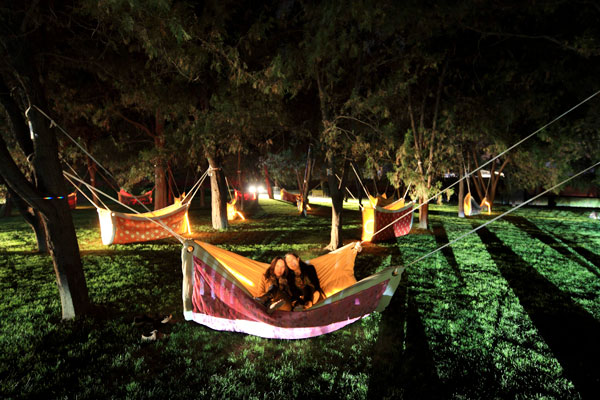
Ding says good lighting work shouldn't be "showy" and shouldn't create light pollution that affects neighbors. It should also be energy efficient.
She believes most Chinese are unfamiliar with her industry and lighting's best uses. She once conducted a survey and was disappointed to find most people in the hutong (alleyways created by traditional courtyard homes) still use only one filament lamp for large kitchens or two energy-saving bulbs in bedrooms.
"It is not because they can't afford better lights. It's because they haven't realized the importance of the use of good lights," Ding says.
|
|
Some younger people are wiser to lighting, she says.
Ding estimated that professional lighting designers are used only in 0.2 percent of the world's huge architectural projects. Lighting usually falls under the purview of interior designers.
"It will never be a mainstream design field. We are very relaxed, as we don't have many competitors globally," Ding says, laughing.
The lights in Ding's office turn on when she enters and are controlled by her movements and voice.
"Lighting design might not be the most important, but I think it brings architecture and buildings' interiors alive," she says.
Contact the writer at gantian@chinadaily.com.cn.
|
|
|
|
|
|
|
|